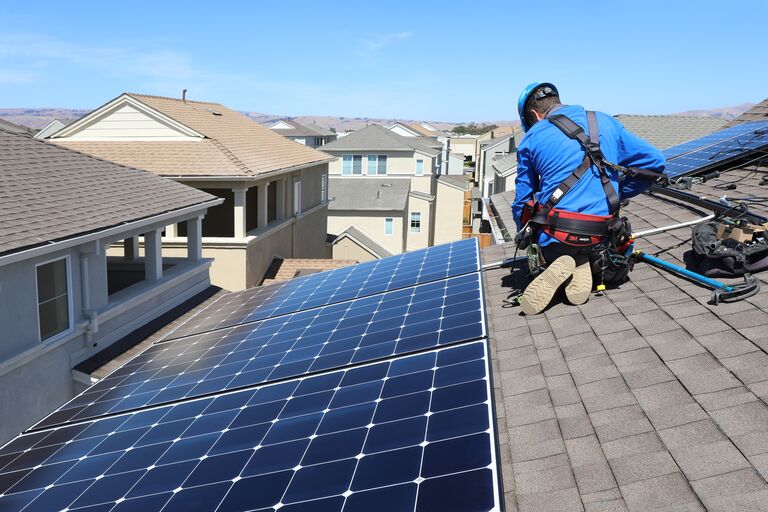The Total Guide to Solar Energy Installation: Conserve Money and Go Eco-friendly
Exploring the nuances of solar energy setup discloses a complex technique to both cost savings and ecological responsibility. House owners are significantly thinking about solar power not only as a feasible choice however as a critical financial investment that can produce considerable long-lasting advantages. The procedure involves mindful consideration of different variables, including system option and installment treatments. Comprehending these components is crucial for optimizing performance and savings. What specific steps should one take to guarantee an effective shift to solar power, and how can financial incentives further enhance this endeavor?
Advantages of Solar Power
The expanding adoption of solar power shows a substantial shift toward sustainability and environmental responsibility. Among the primary benefits of solar power is its capability to decrease reliance on nonrenewable fuel sources, causing lowered greenhouse gas discharges. By using the sun's power, individuals and companies can add to a cleaner environment and mitigate the damaging effects of environment adjustment.
Additionally, solar power can result in substantial economic cost savings. Once mounted, photovoltaic panels dramatically lower power expenses, as they generate power from an eco-friendly source. Several governments additionally use motivations, discounts, and tax obligation credit scores to urge solar fostering, further improving financial viability.
An additional notable advantage is power self-reliance. Solar power systems enable house owners and companies to create their own electrical power, decreasing vulnerability to varying power costs and supply interruptions. Additionally, solar energy systems need minimal maintenance, converting to reduced long-lasting functional costs.
Picking the Right Planetary System

Solar systems vary dramatically in rate depending on their type, size, and effectiveness. Consider potential financing alternatives such as loans, leases, or power acquisition contracts (PPAs) that may minimize in advance expenses.
Readily available space is an additional essential element. Examine your roof covering's alignment, angle, and shading, as these components can impact solar panel efficiency. If roofing space is limited or unsuitable, ground-mounted systems might be a sensible choice.
It's necessary to carry out thorough study to understand the certain rewards readily available in your location, as they can vary extensively. Consulting with a solar setup expert can aid you browse these choices effectively, ensuring you optimize your savings while adding to a more lasting energy future.
Preserving Your Planetary System
Efficient upkeep is important for ensuring the long life and optimal performance of your solar power system. Regular upkeep can help prevent minor issues from intensifying into costly fixings and make sure optimal energy efficiency.
Begin with routine evaluations of your solar panels, ideally every 6 months. Cleaning the panels, especially in areas susceptible to dirt or bird droppings, can significantly improve power production.
Next, check the inverter. This element transforms solar energy into functional electrical energy and should be examined monthly. Most modern-day inverters have keeping track of systems that signal you to efficiency issues, permitting prompt treatment.
In addition, inspect the circuitry and solar panels for business connections for any type of signs of rust or damage, as these can result in reduced effectiveness or system failing. Last but not least, think about specialist maintenance solutions annually for an extensive examination.
Conclusion
In final thought, the adoption of solar energy offers substantial advantages, consisting of reduced power expenses and a favorable ecological effect. Careful factor to consider in selecting the suitable solar system, combined with a clear understanding of the installation procedure, boosts the general experience. Financial rewards and regular upkeep further add to the long-term advantages of solar power. Ultimately, welcoming solar modern technology stands for an important action towards sustainability and energy independence, fostering a greener future for all.